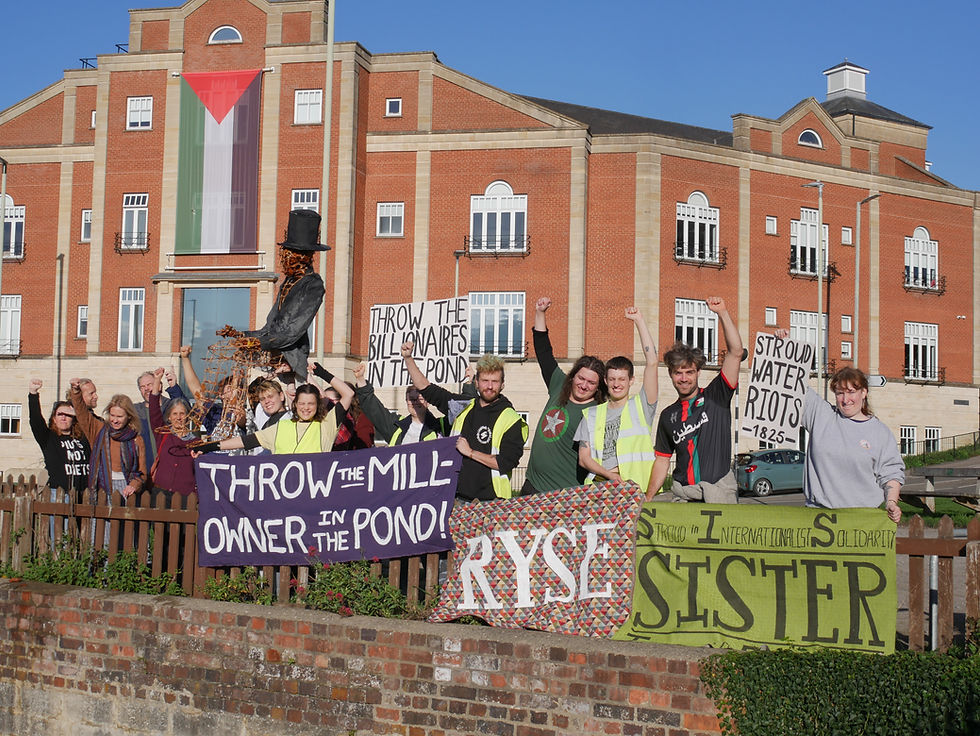Take aways from 'The Entangled Activist' 1
- stringermartha00
- Nov 3, 2021
- 3 min read
I recently read Anthea Lawson's new book 'The Entangled Activist: Learning to recognise the master's tools' it has some amazing observations about the 'internal life' and culture of activist spaces. Its key idea is that we are all entangled in the damaged and damaging cultures which we are trying to change, and that understanding the depths these entanglements is essential for making real transformations.
My intention is to do a few blog posts covering some of the themes which came up, so here goes the first…
1) Binaries, externalising problems and shifting blame
The book begins by looking at some of the uncomfortable traits in activists. One of the characteristics which people find totally infuriating about us is our righteousness. This is when we consider ourselves as right/ good and define ourselves in contrast to others (often non-activists) who are wrong/ bad. It is a kind of binary thinking which we have inherited from the dominant culture; and the same logic which created the nature/culture, mind/body split which is at the route of many social and environmental problems we are trying to fix.
Lots of activists waste an incredible amount of time on righteous identity building. We compete with one another to demonstrate moral purity and political wokeness and often treat non-activists and ‘unbelievers’ with distain. But do we really expect to change the world by treating the people we are trying to reach with disgust? Anthea Lawson says that righteous behaviour is a defence mechanism, and is hiding something deeper. For example, a white middle-class activist loudly shouting at a white middle-class investment banker for their ethical sins may be unconsciously doing so to soothe their own guilt around privilege.
It’s hard to talk about our entanglements because it feels like a political failure. Pointing out activists’ foibles and hypocrisies it’s the classic, ‘shoot the messenger’ tactic the media use to avoid engaging with the important problems activists are highlighting. But we need to be real with ourselves and each other and acknowledge that we are all entangled in the systems and narratives we are trying to change. There is no such thing as ‘goodies’ and ‘badies’ and by locating action/inaction in people as the discreet identities we get no closer to change. That middle-class activist seriously facing up to their privileges and making choices which break historical patterns of oppression would help to erode wealth inequality in a way that externalising and blaming the investment banker never could.
This is why we need to be aware of the damaging cultures we reproduce in activist spaces, and look at our shit! There are parts of ourselves which we find shameful; maybe we see shadows of dominance, injustice, or violence and it frightens us. As activists, it doesn’t fit with our identity of being ‘good’, embodying equality justice and peace. The response is to bury it- hiding it from ourselves and others who might ‘find us out’. The result of this is that lots of activists locate problems far away, in other people and places. Anthea Lawson talks about this as 'over there' thinking which is totally rife in extractive capitalist economies. It is easier to blame and externalise than to acknowledge our own complicity and entanglements in the social structures we want to change. If everyone shifts the blame, we get nowhere.
She gives this really great quote by Toni Morrison:
“There are no strangers. There are only versions of ourselves, many of which we have not embraced, most of which we wish to protect ourselves from…”
For me, this is getting at the idea that who we are and the ways we behave and are expressions of systems and histories we are caught in. We all exist in relation to one another, and our identities and experiences are constructed from these entanglements. Therefore, personal transformation is a legitimate and essential aspect of doing activism. We have the opportunity to undo some of the harms of the world by transforming the particular expression-of-the-world-in-human-form which we happen to be. One way is to consciously reject narratives of 'us and them', which we know is a deep-running part of the problem. Recognising our own entanglements in the world's problems is different to hating ourselves for our complicity and much more sustainable than trying to maintain a façade of moral perfection. In fact, letting down our guard makes us generally much easier to be around, and conversation between people can start to bridge the gap between activists and non-activists. It can help all of us all to find agency and new ways of relating to foster solidarity, rather than competitivity and defensiveness.





Comments